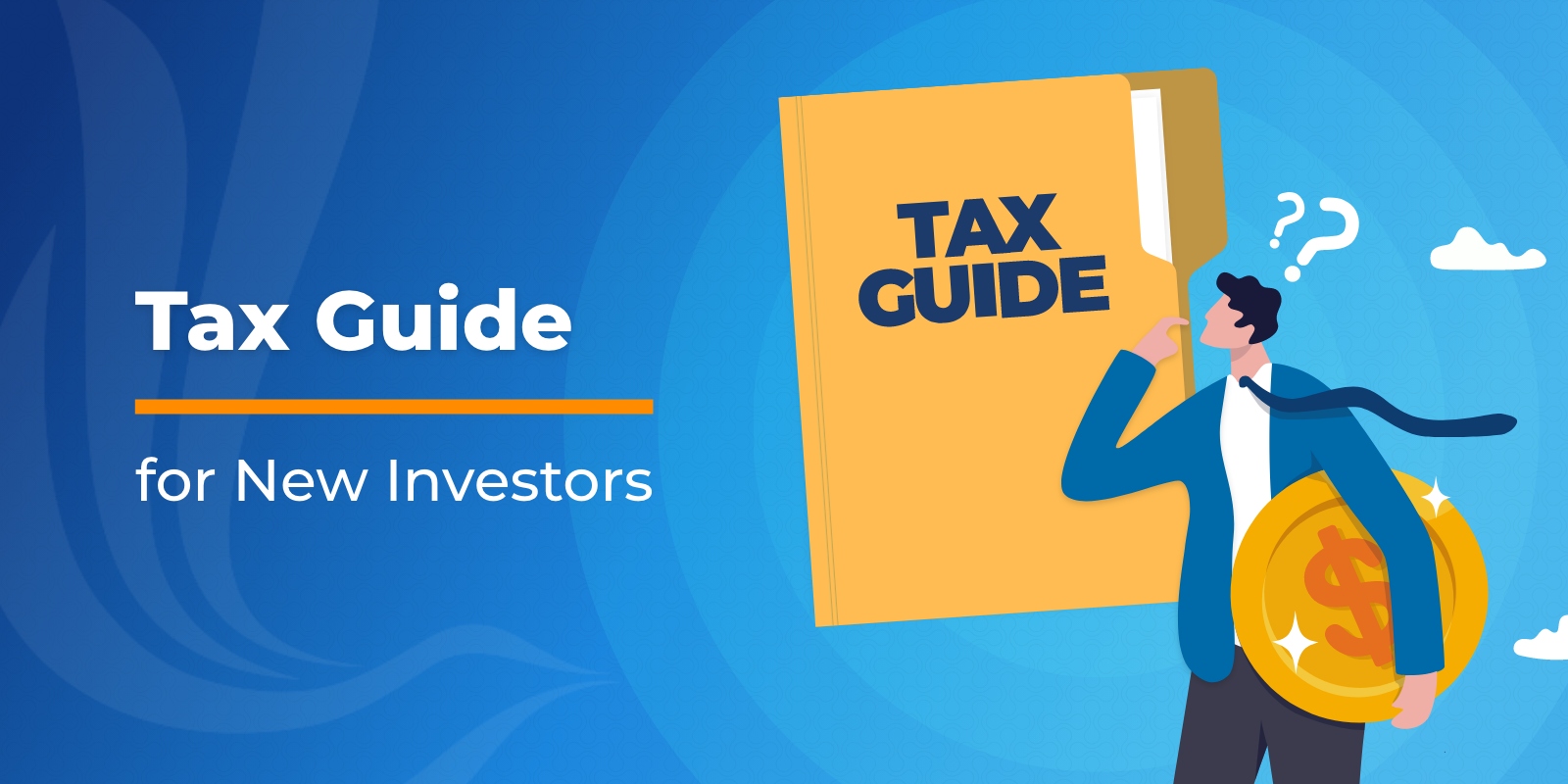Tax Guide for New Investors

When considering investing, you may first daydream of the potential rewards of the risky endeavor. But as a new investor, it can be overwhelming to navigate the world of taxes. However, understanding the basics of taxation can help you make informed decisions and avoid costly mistakes during tax time. In this brief tax guide for new investors, we will cover some of the essential things you need to know.
Capital Gains vs. Ordinary Income
When you invest, you have the potential to earn income through two methods: capital gains and ordinary income. Capital gains are the profits you make when you sell an asset for more than you paid for it. Ordinary income is income earned through wages, salaries, interest, dividends, and other sources.
The tax rate for capital gains is generally lower than the tax rate for ordinary income. The tax rate you pay on capital gains depends on how long you hold the asset before selling it. If you hold it for more than a year, it’s considered a long-term capital gain. In this case, the tax rate will be lower than if you hold it for less than a year, otherwise known as a short-term capital gain. Short-term capital gains are taxed as ordinary income. In 2023, the tax rates for long-term capital gains are as follows:
| Filing Status | 0% | 15% | 20% |
| Single | Up to $44,625 | $44,626 to $492,300 | Over $492,300 |
| Head of Household | Up to $59,750 | $59,751 to $523,050 | Over $523,050 |
| Married Filing Jointly orQualified Widow(er) | Up to $89,250 | $89,251 to $553,850 | Over $553,850 |
| Married Filing Separately | Up to $44,625 | $44,626 to $276,900 | Over $276,900 |
The long-term capital gains tax rates for 2024 are:
| Filing Status | 0% | 15% | 20% |
| Single | Up to $47,025 | $47,026 to $518,900 | Over $518,900 |
| Head of Household | Up to $63,000 | $63,001 to $551,350 | Over $551,350 |
| Married Filing Jointly orQualified Widow(er) | Up to $94,050 | $94,051 to $583,750 | Over $583,750 |
| Married Filing Separately | Up to $47,025 | $47,026 to $291,850 | Over $291,850 |
Tax Implications of Different Types of Investments
Different types of investments are taxed differently. For example, stocks are taxed on capital gains and dividends, while bonds are taxed on interest income. Real estate is also subject to specific tax rules, including depreciation deductions and the potential for tax-deferred exchanges.
It’s important to understand the tax implications of your investments before you invest. For example, if you’re investing in a high-yield bond, you may be subject to higher taxes on the interest income than if you were investing in a low-yield bond. By understanding the tax implications, you can make informed decisions about where to invest your money. Consulting with a financial advisor before making these financial moves can help you make the most informed decision now and prepare for any tax bill later.
Investment Expenses
Investment expenses can be deducted from your taxes, which reduces your taxable income. These expenses can include brokerage fees, investment advisory fees, and other costs related to your investments. It’s important to keep track of these expenses throughout the year, so you can deduct them on your tax return. Be sure to have proper documentation just in case the IRS requests substantiation later.
Selling Investments
Knowing when to sell your investments can have a significant impact on your taxes. If you sell an asset for a loss, you can use that loss to offset capital gains from other investments. This is called tax-loss harvesting and can help reduce your tax bill. Tax-loss harvesting could also help reduce your ordinary income tax liability, even if you don’t have any capital gains to offset. To do this, you would sell a stock at a loss and then purchase a similar stock with the proceeds.
Tax-Advantaged Accounts
Tax-advantaged accounts are investment accounts that offer tax benefits. These accounts include 401(k)s, IRAs, and 529 college savings plans. Contributions to these accounts are tax-deductible, and the investment interest grows tax-free. When you withdraw the money during retirement or for qualified education expenses, you’ll pay taxes on the withdrawals, but typically at a lower tax rate than during your working years. Investing in tax-advantaged accounts can be an effective way to reduce your tax bill and grow your investments over time.
In conclusion, understanding taxes is an essential part of investing. By knowing the tax implications of your investments, keeping track of your investment expenses, and taking advantage of tax-advantaged accounts, you can reduce your tax bill and maximize your investment returns. Remember to consult with a tax professional for personalized advice on your specific situation.
Tax Help for New Investors
Remember, the most important thing you can do during tax time is ensure that you are reporting all income, whether it is ordinary income, interest earned on a bond, or dividends paid out to you that year. Failing to report income during tax time can put you on a fast path to being audited by the IRS. If you need help with a large tax liability because you were unprepared for the tax implications of investments, a knowledgeable and experienced tax professional can assist. Optima Tax Relief is the nation’s leading tax resolution firm with over $1 billion in resolved tax liabilities.
If You Need Tax Help, Contact Us Today for a Free Consultation